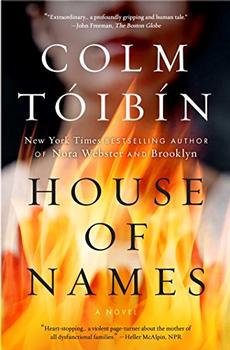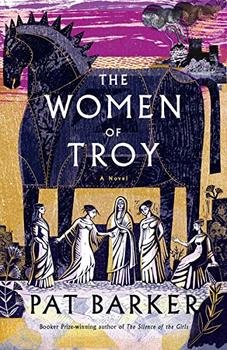Summary | Excerpt | Reading Guide | Reviews | Beyond the book | Read-Alikes | Genres & Themes | Author Bio

From the thrilling imagination of bestselling, award-winning Colm Tóibín comes a retelling of the story of Clytemnestra - spectacularly audacious, violent, vengeful, lustful, and instantly compelling - and her children.
"I have been acquainted with the smell of death." So begins Clytemnestra's tale of her own life in ancient Mycenae, the legendary Greek city from which her husband King Agamemnon left when he set sail with his army for Troy. Clytemnestra rules Mycenae now, along with her new lover Aegisthus, and together they plot the bloody murder of Agamemnon on the day of his return after nine years at war.
Judged, despised, cursed by gods she has long since lost faith in, Clytemnestra reveals the tragic saga that led to these bloody actions: how her husband deceived her eldest daughter Iphigeneia with a promise of marriage to Achilles, only to sacrifice her because that is what he was told would make the winds blow in his favor and take him to Troy; how she seduced and collaborated with the prisoner Aegisthus, who shared her bed in the dark and could kill; how Agamemnon came back with a lover himself; and how Clytemnestra finally achieved her vengeance for his stunning betrayal - his quest for victory, greater than his love for his child.
In House of Names, Colm Tóibín brings a modern sensibility and language to an ancient classic, and gives this extraordinary character new life, so that we not only believe Clytemnestra's thirst for revenge, but applaud it. He brilliantly inhabits the mind of one of Greek myth's most powerful villains to reveal the love, lust, and pain she feels. Told in fours parts, this is a fiercely dramatic portrait of a murderess, who will herself be murdered by her own son, Orestes. It is Orestes' story, too: his capture by the forces of his mother's lover Aegisthus, his escape and his exile. And it is the story of the vengeful Electra, who watches over her mother and Aegisthus with cold anger and slow calculation, until, on the return of her brother, she has the fates of both of them in her hands.
What could have become a trite, overwrought, emotional depiction of "woman goes mad with grief, and is further corrupted by power" and, therefore, a backwards-looking cautionary tale, is, instead, presented as moving and human. While the depicted deeds by multiple characters are villainous to the point that even Lady Macbeth looks positively virtuous, Tóibín's narrative leads the reader to a place of compassion for these characters, and a better understanding of why darkness may come to reside in the human heart...continued
Full Review
 (529 words)
(529 words)
(Reviewed by Michelle Anya Anjirbag).
 The story of Clytemnestra is told in bits and pieces across several play cycles from the Classical period, and before. At the end of the House of Names, the author Colm Tóibín notes that, while the majority of the novel's events are not related to any source material, the overall shape of the narrative and the main characters are taken from The Oresteia by Aeschylus, Electra by Sophocles, Euripides' Electra, Orestes, and Iphigenia at Aulis. Clytemnestra, as well as Electra, make appearances in other plays and art forms throughout history, but are rarely humanized in the way that we see in Tóibín's book. In fact, the way in which House of Names is perhaps most subversive is how Tóibín humanizes these ...
The story of Clytemnestra is told in bits and pieces across several play cycles from the Classical period, and before. At the end of the House of Names, the author Colm Tóibín notes that, while the majority of the novel's events are not related to any source material, the overall shape of the narrative and the main characters are taken from The Oresteia by Aeschylus, Electra by Sophocles, Euripides' Electra, Orestes, and Iphigenia at Aulis. Clytemnestra, as well as Electra, make appearances in other plays and art forms throughout history, but are rarely humanized in the way that we see in Tóibín's book. In fact, the way in which House of Names is perhaps most subversive is how Tóibín humanizes these ...

If you liked House of Names, try these:

by Ferdia Lennon
Published 2025
An utterly original celebration of that which binds humanity across battle lines and history.

by Pat Barker
Published 2022
A daring and timely feminist retelling of The Illiad from the perspective of the women of Troy who endured it--an extraordinary follow up to The Silence of the Girls from the Booker Prize-winning author of The Regeneration Trilogy.